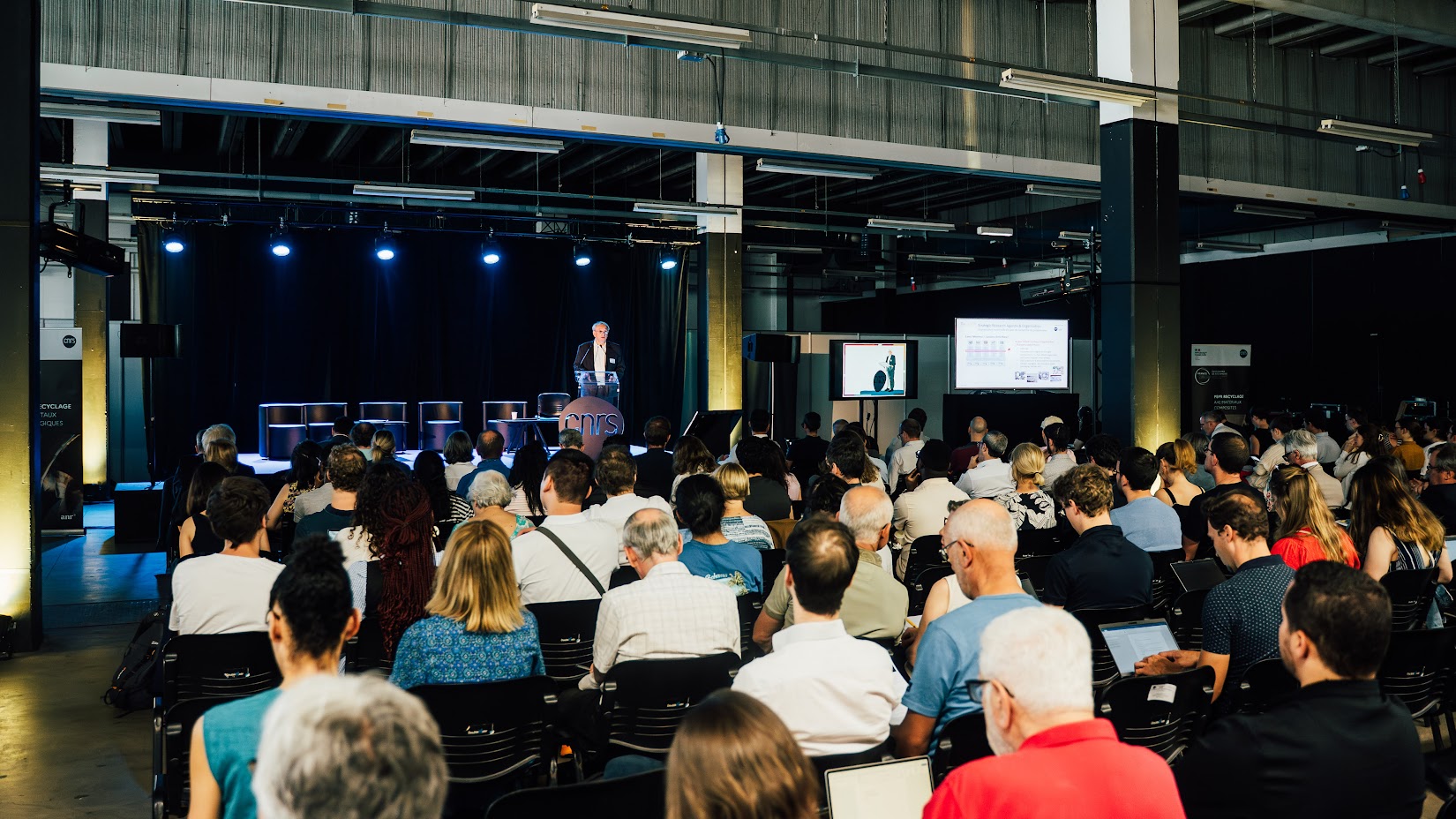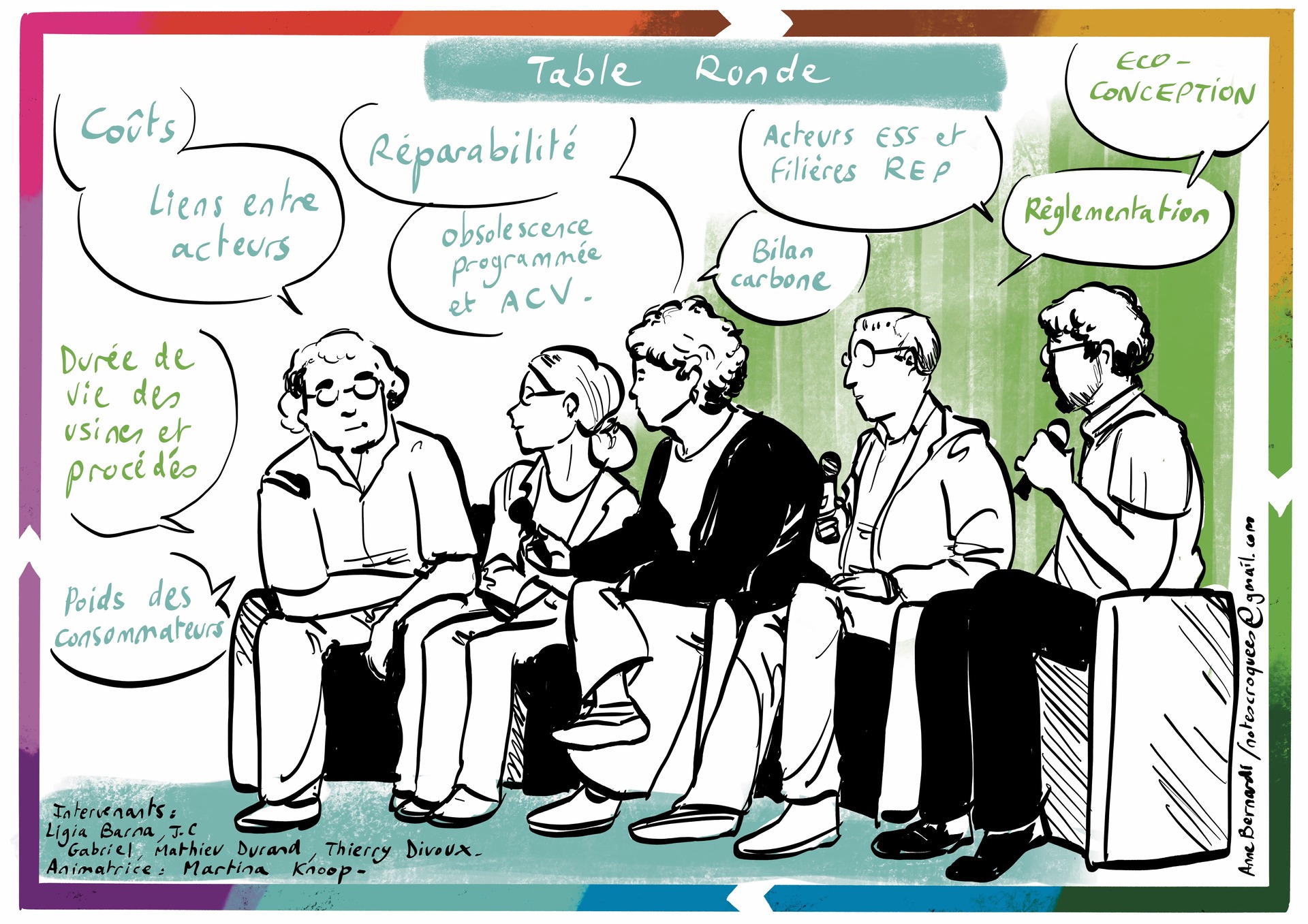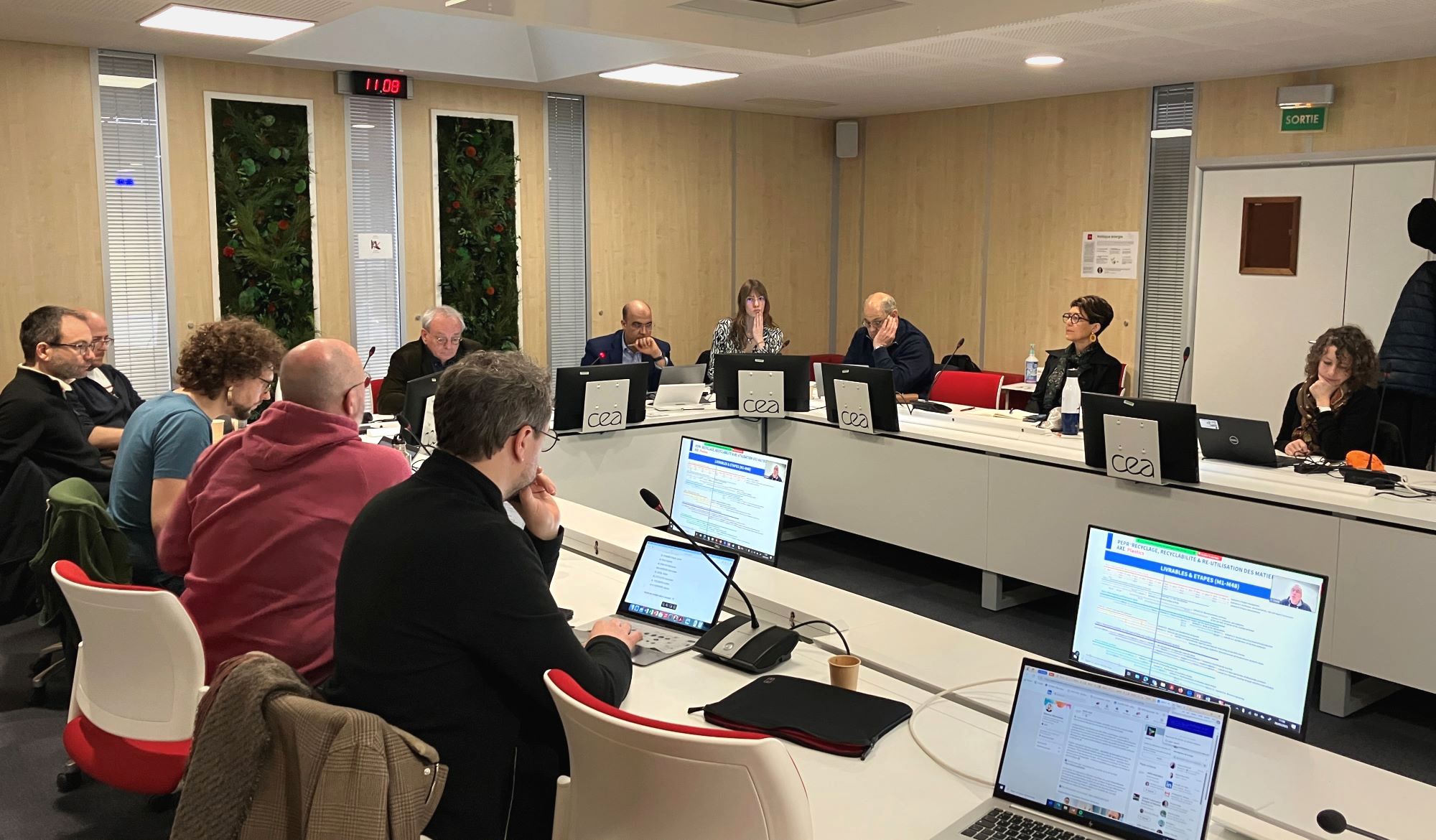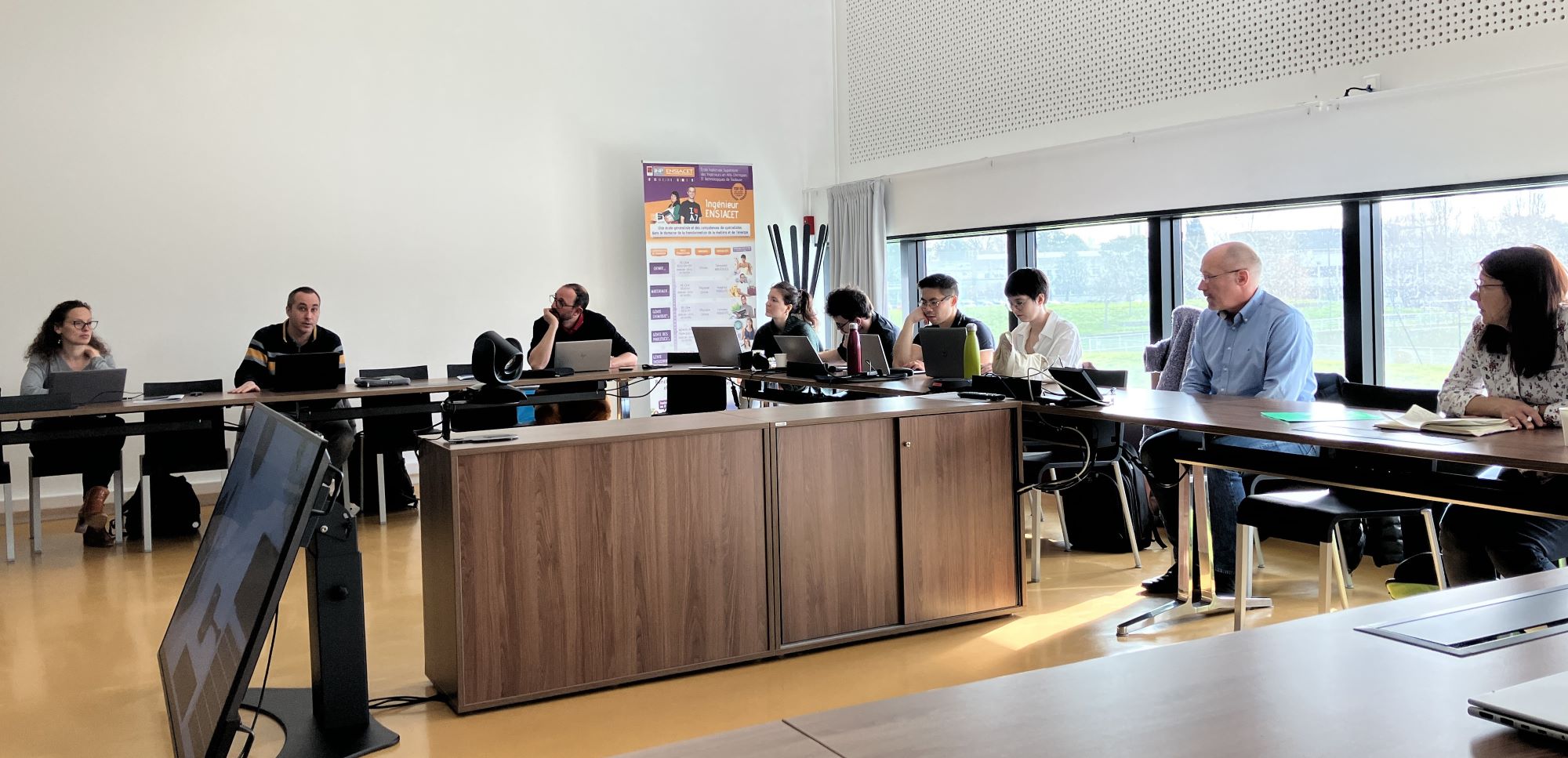
Batteries axis
general assembly
The annual meeting of the PEPR Batteries axis took place on March 19 in Toulouse, at the INP-ENSIACET premises.
This axis is represented by the LULABAT scientific project, led by Marlène Chapuis, laboratory manager at CEA-Liten and Alexandre Chagnes, professor at the University of Lorraine. Its objective is to develop innovative, sustainable, economical and flexible recycling processes for used lithium-ion batteries.
In addition to providing a reflection on the future initiatives of the axis and on the arrival of the new AMI partners, the day provided an opportunity to take stock of the progress of each part of the project:
- Frédéric Lai and Aina Mas Fons of BRGM first presented their research which analyzes the value chain and the market for battery-grade graphite and identifies the future role of recycled graphite.
- Tanguy Dusson then developed his work, under the direction of Laurent Cassayre of the Toulouse Chemical Engineering Laboratory, on the contribution of leaching-attrition phenomena for the treatment of NMC (nickel, manganese, cobalt and lithium oxide) by dissolution and precipitation.
- Soukayna Badre-Eddine presented her research on task 3 led by Alexandre Chagnes, which addresses the implementation of electrodialysis in hydrometallurgical processes.
- Alexandre Nominé was able to develop his part, which aims to design multi-criteria decision systems to evaluate the sustainability of battery raw materials.
- Finally, Roberto Barbano presented his work within task 5 led by Emmanuel Billy, which explores the mechanisms of oxidative precipitation for the improvement of Mn, Co, Ni separation.
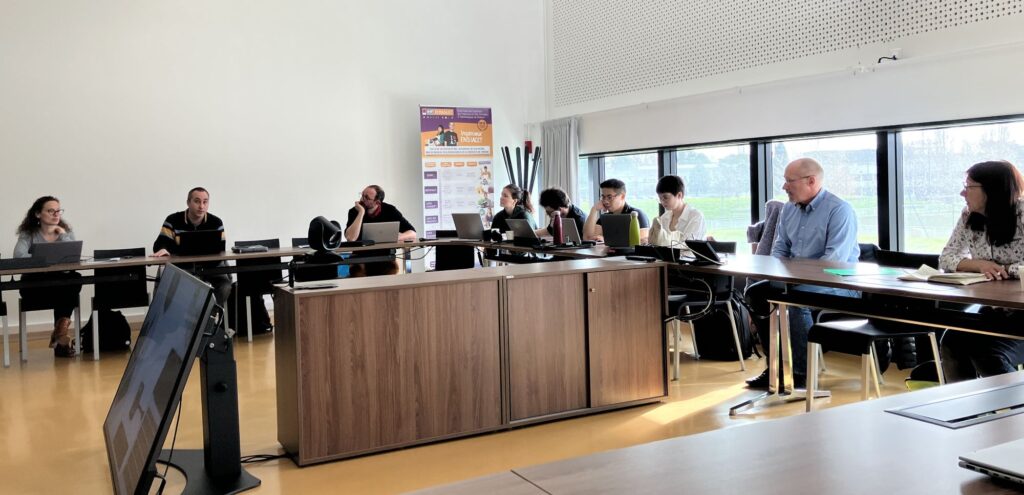
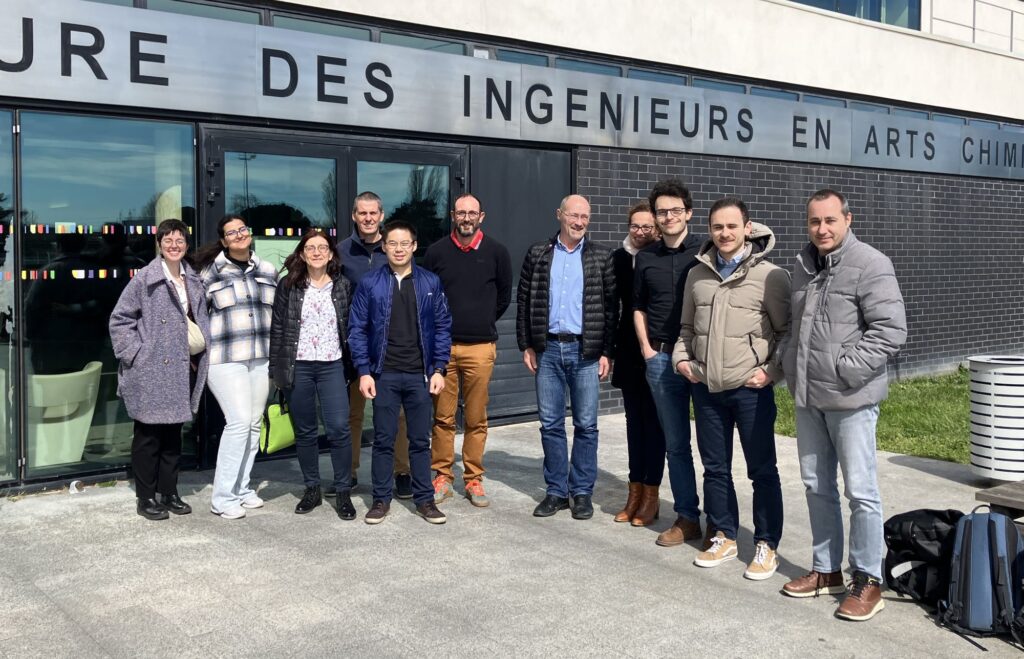
The LULABAT research project aims to identify and address the main challenges of battery recycling, focusing primarily on the recovery of metals present in NMC-type cathode materials but also of graphite constituting the anode (main components of current batteries). The objective is to develop new unit operations that could reduce the operating costs and environmental impacts of lithium-ion battery recycling processes, particularly concerning the hydrometallurgical stage.
More news
